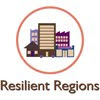Such was the case for 27 of the most respected minds in the disaster recovery business during a recent retreat to the Edward Lowe Foundation, December 15-17, 2009.
Similar to Las Vegas in the sense that kitty litter can be applied to many things, but has only one official purpose, the Edward Lowe Foundation creates a forum of camaraderie as a means of arriving at a desired goal.
The goal of this retreat was simple: Learn from past experiences to establish effective methods of rejuvenating small businesses following a disaster. Again, just picture Vegas with more snow, but without the lights, casinos, showgirls, etc...
With recovery expertise varying widely from Katrina, Gustav and Ike, to the Midwestern floods, California earthquakes and 9-11 (among others), the discussion was often intense, at times emotional and, suffice it to say, usually yielded more questions than answers. How can small businesses overcome exorbitant insurance premiums following a disaster? Should high-risk states develop a "rainy day" disaster fund to aid unforeseen recovery efforts? What incentives do small businesses have to write a disaster plan?
Of the organizations represented --- chambers of commerce, economic development councils/districts, regional councils of government, federal representatives of EDA and HUD ---all have been directly involved in restoring the economic and public health of a community following a disaster.
Below is just a brief example of some ideas that came up for better disaster preparation, reaction and recovery:
- Information Dissemination -There needs to be a national clearinghouse for all disaster-related information including: state/federal funding resources, tool kits for recovery, best practices for cross-organizational communication, working with the media, etc.
- Access to Capital - There needs to be a more immediate distribution of funds to small businesses which are more apt to fail without short-term disaster funding (within 0-6 months of disaster). Either a fast-track process similar to that of the IRS, or direct distribution from state/local governments
- Training - There needs to be better training of the private, small business sector in terms of disaster planning and recovery - perhaps tied to tax incentives or financial aid. This could be the result of annual training provided by local chambers of commerce or economic development entities.
- Regional Resilience - Working groups need to be created at the regional level to support continuous improvement of front-end disaster preparation and to better identify all the key players in the process (includes building relationship with state-level offices of federal government - FEMA/HUD/SBA/EDA)
- Business Triage - Directly following a disaster there needs to be a better understanding of which businesses: a) aren't coming back no matter what b) could come back with immediate assistance or c) would come back if certain parameters justify a return.
Full disclosure: due to an oath akin to "what happens in Vegas, stays in Vegas", some valid points have been omitted from the above list. A more comprehensive list will be available in the coming months as part of ongoing discussion between retreat participants and other vested parties.
Please feel free to comment on these and additional issues related to small business disaster preparation and recovery in the comment box below.
Happy Holidays!
P.S. NADO would like to thank our partners at IEDC, BCLC and EDA for their contributions to this event. all the folks who braved the nightly campfires and, of course, those who attempted walking across it.





No comments:
Post a Comment